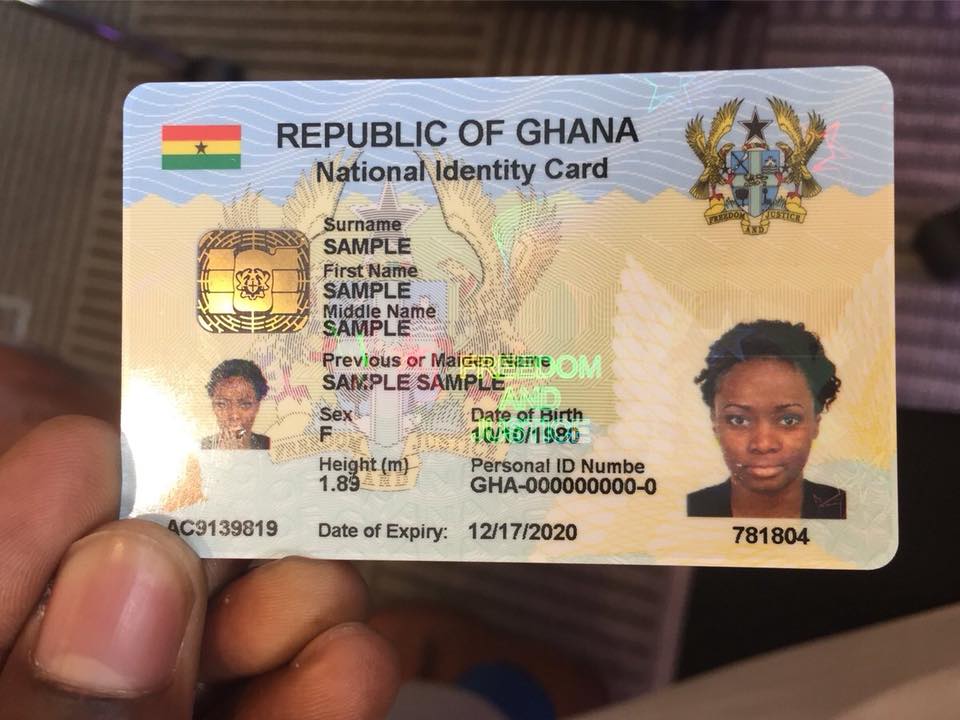adverts
The National Health Insurance Authority (NHIA) has absorbed the cost of the issuance of the cards for an estimated three million children in the country to enable them to link up with the National Health Insurance Scheme (NHIS) to access primary health care.
As a result, the National Identification Authority (NIA) will receive GH¢245 million from the NHIA in order to issue Ghana Cards to kids in that age group. At a workshop last Saturday in Kumasi for media and other stakeholders, Dr. Da-Costa Aboagye, the Chief Executive Officer (CEO) of the NHIA, revealed that the intervention was a component of the authority’s efforts to provide universal health coverage (UHC) for everyone.
The Ghana Card is currently supposed to be given to children between the ages of 0 and 5 at birth.The Ghana Card is already being given to NHIS members who are 15 years of age or older, allowing the NHIA to connect their NHIS cards to it.
adverts
Out of the one million active SSNIT contributors on the NHIS, about 900,000 have also linked their Ghana Cards to their accounts, enabling the NHIA to use the Ghana Card as identity authentication.
Using the Ghana Card database, the records of an additional 1.3 million SSNIT contributors who are not enrolled in the programme are being cleaned up as needed.
Dr. Aboagye made the observation that giving the Ghana Card to kids under the age of 15 would enhance membership data by connecting to the NIA database. The NHIA CEO added that it will also save money by improving the NHIS’s membership integrity and avoiding the need to purchase biometric cards.
The cost of the Ghana Card is between $6 and $7, whereas the NHIS cards are between $4 and $6. The NHIA feels that while they could simply join both databases, it is not financially prudent to create two cards at that expense for the same individual.
In order to guarantee that only the national identification card would be used to access primary health care provided under the NHIS, the NHIA Board decided to transfer card printing to the NIA. This would allow NHIS subscribers to receive the Ghana Card, which would be linked with NHIS subscriber numbers.
According to the head of NHIA, a plan to implement preventative healthcare activities has been put up to assist the country in meeting UHC targets by 2030. He said the courses, which are scheduled to launch this month, will concentrate on three main issues: body mass index checks, diabetes, and hypertension.
Dr. Aboagye went on to say that clinics and wellness centres would be built to help members assess their health and fitness. He clarified that the authority intended to use the money from the programme to send text messages to NHIS members on their birthdays each year to inquire about their health status at national government hospitals.
Dr. Aboagye stated that in order to implement the NHIS card programme for non-resident Ghanaians who travelled to the nation, the authority was consulting with the Attorney General and the Minister of Justice before receiving Cabinet clearance.
Dr. Ernest Quarcoo, the NHIA Board Chairman, said that health insurance was essential to the country’s progress and urged the media to help enhance the programme, especially for the benefit of the weaker members of society.
William Omane-Adjekum, the NHIA’s Deputy Director of Quality Assurance, reported that last year, the country prevented GH9.5 million in false claims. Speaking about how the NHIA was able to uncover fraud, identity theft, and misuse thanks to the digital payment platform, he added, “We are employing Artificial Intelligence to determine outliers and trends regarding insurance claims in real time.”
Theophilus Owusu-Ansah, the NHIA’s Deputy Director in charge of Claims, stated that the authority receives insurance volumes from service providers totalling between GH20 million and GH30 million each year.
He said that among other illnesses, the claims included free maternity care, family planning, and malignancies of the breast and cervical regions. Mr. Owusu-Ansah emphasised that the scheme’s main cost-drivers were maternity care, diabetes, and hypertension.
There are presently 30 million Ghanaians registered on the NHIS, according to Joseph Annor, Deputy Director of NHIA’s Information Management System.
17.9 million were active members, he claimed.
Mr. Annor continued, saying that the programme has gone through a number of system implementations, including the distribution of booklets, laminated cards, magnetic cards, and the current use of smart biometric cards.


